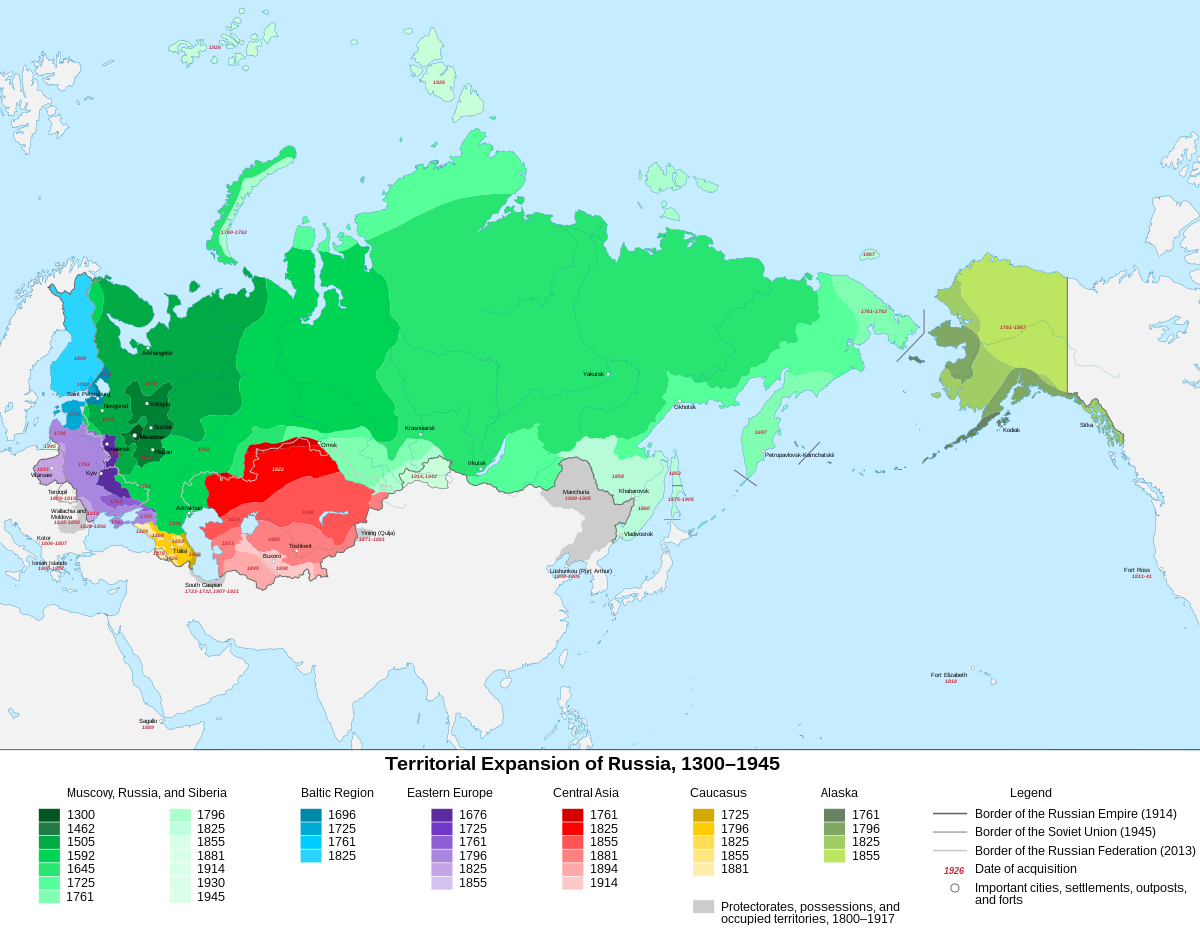The victories of Ivan the Terrible over the Volga Tatars led to the first major advances, with private enterprise leading the way. By the end of the sixteenth century the Stroganov family had obtained huge concessions in the Ural area, where they made a great fortune in the fur trade and discovered and exploited Russia’s first iron mines.
The Stroganovs hired bands of Cossack explorers, who led the eastward movement; Timofeyevich Yermak, “Conqueror of Siberia” (d. 1584), whose exploits took on legendary proportions, extended control to the mouth of the Tobol. At a suitable point on a river basin, the spearhead of the advance party would build a wooden palisade and begin to collect furs from the surrounding area. Almost before the defense of each new position had been consolidated, the restless advance guard would have moved hundreds of miles farther eastward to repeat the process, until the Pacific was reached at Okhotsk in the 1640s.
The government followed with administrators and tax collectors, soldiers and priests, as each new district was opened up. A Siberian bureau in Moscow had nominal responsibility for government of the huge area, but decisions had to be made on the spot because of slow communications. Thus the Siberians always tended to have the independence traditionally associated with the wide open spaces. Because Okhotsk and its surrounding area along the Pacific were intensely cold and the ocean frozen for much of the year, the Russians were soon looking enviously southward toward the valley of the Amur River, which flowed into the Pacific at a point where the harbors were open year-round.
Explorations in this area brought the Russians into contact with the Chinese, upon whose outer lands they were now encroaching. But the Chinese government of the period had little interest in these regions. In 1689 the Chinese signed with Moscow the Treaty of Nerchinsk.
The treaty stabilized the frontier, demilitarized the Amur valley, and kept the Russians out of Manchuria, though it recognized the Russian advances farther north. It also provided the two powers with a Mongolian buffer zone that acknowledged Chinese overlordship. Thus, with great speed the Russians had acquired an empire with extensive natural resources and had staked out a future as an Asian power with interests in the Pacific.

